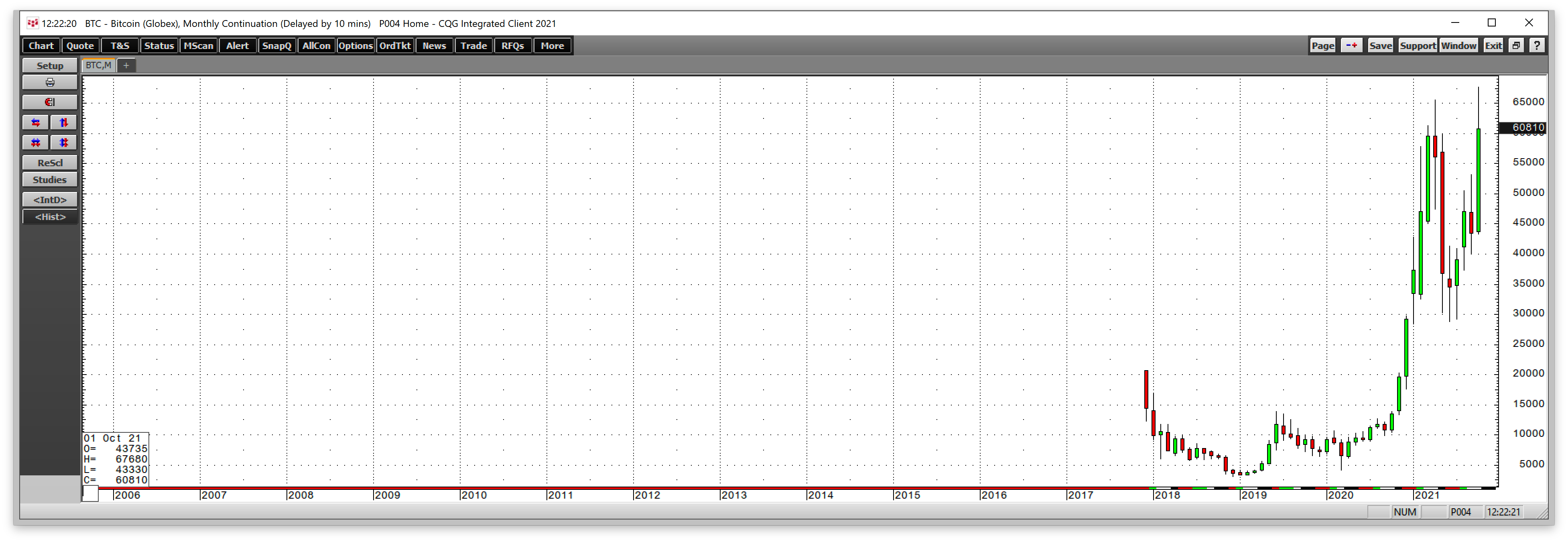This article was written exclusively for Investing.com
- What is the Metaverse?
-
As with crypto, my intial reaction could be wrong; tech pervades every aspect of our lives
- Fintech is the future
- Incredible tech strides in my lifetime
- Reality versus fantasy - A complex issue
Now in my early 60s, I am old-school in many ways. When I first began my career in the commodities business, the computer was on a separate floor in a refrigerated room. In the 1980s, personal computers started appearing on desks. Calculations that once took hours to complete now took nanoseconds.
My first cell phone weighed around 20 pounds. I carried it in a suitcase. Today, my cell phone fits comfortably in my back pocket and has far more computing power than that refrigerated computer in its separate room. Moreover, it has many functions that replaced most of the electronics I owned in the 80s, 90s, and 2000s.
I have had a front-row seat during the technological era. I was fortunate to meet Steve Jobs when he sold his NeXT computer system to our company during his hiatus from Apple.
As a writer and market analyst, social media has broadened my reach way beyond my wildest imagination. Technology has been and will continue to be amazing. I can’t imagine what changes my grandchildren will see over the next 50 years.
Historically, innovation has occurred at lightning speed. The newest concept is the “Metaverse,” a term that's supposed to encompass digital reality. To be honest, I just don’t get it. Technology has improved our lives in the here and now. The “Metaverse” is—as comedian Rodney Dangerfield said in his classic movie, Back To School—located in “fantasy land.”
What is a metaverse?
To make matters really confusing, the term metaverse has no single creator nor an agreed upon definition. Loosely, it combines aspects of social media, augmented reality, online gaming, and cryptocurrencies, to form a 'digital reality' that allows users to act and interact virtually.
The Wall Street Journal describes a metaverse this way:
“An extensive world transcending tech platforms, where people exist in immersive, shared virtual spaces. Through avatars, people would be able to try on items available in stores or attend concerts with friends, just as they would offline.”
The 'official' Metaverse will require massive computing power, including tools and code not yet created, written, or available. During Facebook’s (FB) July earnings call, CEO Mark Zuckerberg said:
“It’s a virtual environment where you can be present with people in digital spaces. You can kind of think about this as an embodiment internet that you’re inside of rather than just looking at. We believe that this is going to be the successor to the mobile internet.”
Meanwhile, early versions of the Metaverse already exist on some digital gaming platforms. Roblox, Second Life, and Fortnite offer a virtual world with everything from commerce to concerts.
Proponents say that the Metaverse will create an extension of humanity and creativity. I have a rough time with this idea—going inside the internet is a departure from reality and all of the sensory experiences of real life in the real world.
As with crypto, my initial reaction could be wrong; tech pervades every aspect of our lives
Still, having a front-row seat over the past six decades of technological advances which began picking up steam in the 1980s has opened my eyes to the possibilities. My kneejerk reaction to the Metaverse is to dismiss it as an escape from nature and the world. But then that was my initial reaction to cryptocurrencies as well.
When I first heard about digital currency a little over a decade ago, I dismissed the concept as a technological video game. I watched my sons grow up playing Super Mario and the latest and greatest Xbox and other games. I gave up video games after college as I just didn’t have the time to devote to Ms. Pacman and Asteroids anymore.
Bitcoin mining struck me as a video game where mining was the game, and the reward was the tokens. Like those arcade tokens of my youth, I thought they would never purchase anything of meaning.
Turns out I was dead wrong. Had I bought only $100 worth of Bitcoin when I first heard of the crypto and held it, it would have been worth over $120 million at the end of last week.
Maybe I am old school, but my initial reaction to the Metaverse is the same. Real life is wonderful; I do not need to live mine in some virtual reality inside the internet.
Fintech is the future
Still, fintech is the future. I have no doubt about that fact. Blockchain technology has changed everything as it reflects the necessary evolution of business.
Cryptocurrencies are flourishing because the faith and credit of governments that issue money or legal tender have deteriorated. Individuals are collectively looking for alternatives that return the power of money to the masses.
In his 2004 work, The Wisdom of Crowds, author James Surowiecki highlighted examples proving that “the many are smarter than the few and how collective wisdom shapes business, economies, societies, and nations.”
Cryptos embody the wisdom of the crowd, and their ascent is proof that fintech, and means of exchange that transcend borders and government control, are the future.
In that regard, Bitcoin is the leader of the crypto pack. After trading at five cents per token in 2010, Bitcoin futures opened for trading on the Chicago Mercantile Exchange at just over $20,000 per token at the end of 2017.

Source: CQG
The monthly chart shows that Bitcoin reached a new record high last week at $67,680 per token. Some call cryptos dangerous, others say they are a bubble. However, most of the digital token's opponents have a vested interest in maintaining the status quo.
The crowd continues to push Bitcoin higher. The trend of increasing value is the wisdom of the crowd.
Incredible tech strides in my lifetime
I often think about the changes that occurred during my grandparents’ lifetimes. They went through a pair of World Wars and a Great Depression. They saw radio and TV burst on the scene, replacing newspapers and word of mouth communication of the latest events. The transformation was astonishing for those born in the late 1800s and very early 1900s.
When I was a young boy, there were only a handful of TV stations. Today, there are thousands. The Betamax gave way to the VCR, DVR, and now, streaming.
My car starts with the push of a button. There have been too many technological advances over the past decades to even think about mentioning them. Humans have a natural aversion to change, but technology has improved our lives, making them more efficient and easier.
Reality versus fantasy: it's a complex issue
My problem with the Metaverse goes back to that old saying, “wake up and smell the roses.” While it seems likely that the next phase of technology will appeal to our senses of sight and sound, smells and tastes could be another matter. I remain comfortable with reality.
Fantasy may have its place, but I am concerned that it may make many people live in a different reality, one that will impact socialization, interpersonal relationships, potentially even other factors.
Still, I learned a lesson from cryptocurrencies, so I'm reluctant to dismiss the potential for the Metaverse. However, reality versus fantasy is a complex issue that will likely change our lives, albeit in ways not yet determined.
Technology companies stand to make lots of money as the Metaverse takes hold. My question is, at what cost to users?
